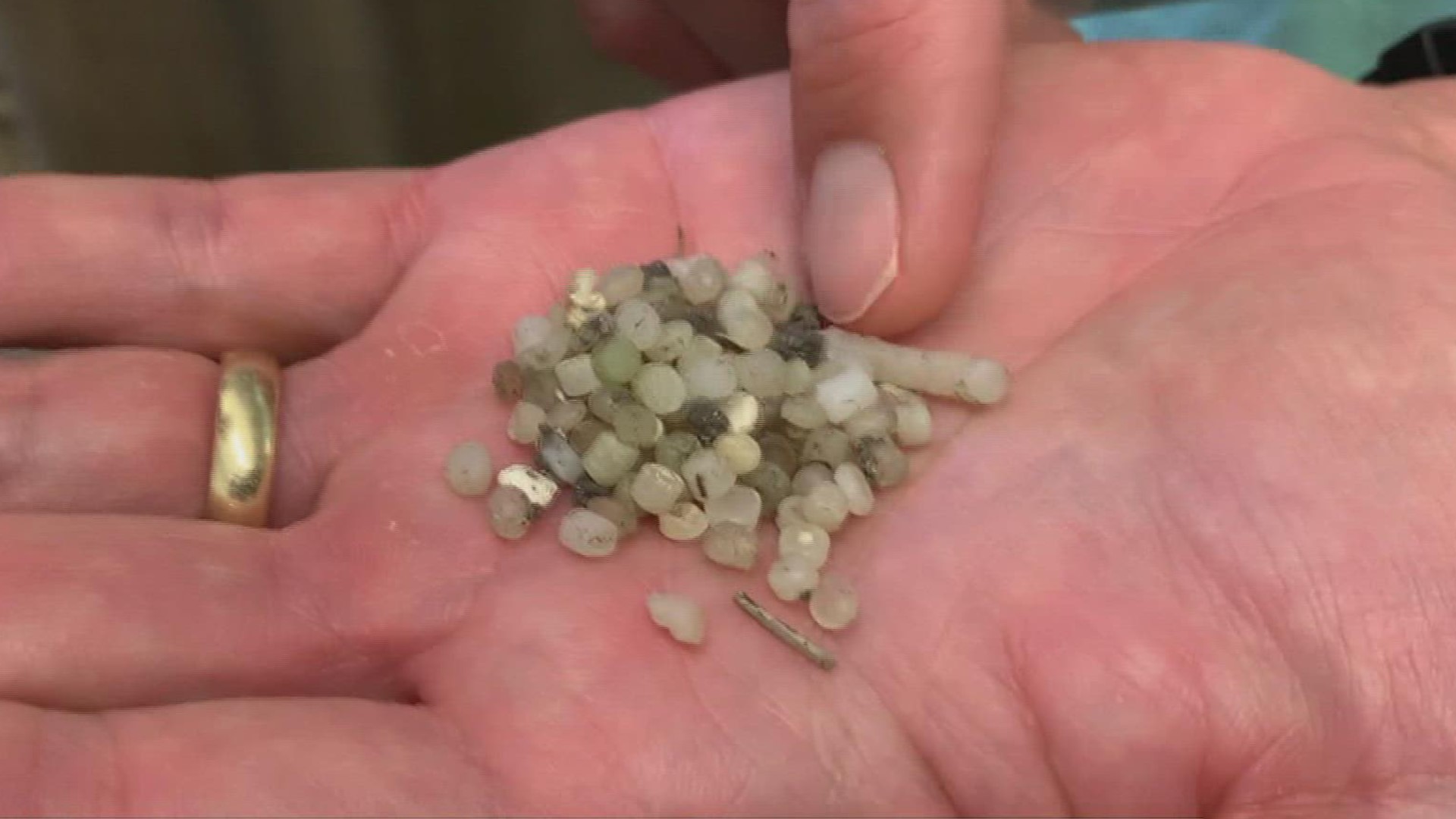CORPUS CHRISTI, Texas — Researchers at the University of Texas Marine Science Institute in Port Aransas have been trying to figure out exactly how dangerous "nurdles" are to our waterways and marine life.
Nurdles are tiny pre-production plastic pellets which are eventually turned into everyday plastic items.
Jace Tunnell is a marine biologist at UTMSI. He and Dr. Kijun Lu just published a research paper about the nurdles found in our environment and whether or not they are toxic.
"Based on our research, we did not detect any PCB on those nurdles based on the EPA protocols, and also based on the EPA level," Tunnell said. "We did detect mercury in the pH's but the level of those two are below the acute toxic level right now."
The bad news is that animals could die from eating them.
"If they eat one or two they probably just pass it through," Tunnell said. "It's whenever there are high concentrations of the pellets and they eat a lot of them at one time, where they can twist their intestines around. It can make them feel like they are full. They can starve to death."
While scientists believe there are billions of nurdles floating around in our oceans, Tunnell said he was surprised to find hundreds of them along railroad tracks in places like Refugio and Kingsville. The plastic pellets are predominately shipped by railcar, and that's helping to spread the plastic and the dangers to those animals that eat them.
More from 3News on KIIITV.com:
- Carjacking suspect shot by Corpus Christi officer after short chase, police say
- 'Burn them now': John Oliver wants to give Mission-Aransas Reserve $10K for their creepy beach dolls
- Christus Spohn Shoreline reopens COVID floor following increase in cases
- Nueces County has 7 of top 10 worst beaches for bacteria in Texas, report says
- Aransas Pass man dies from injuries after chasing off home intruder
- KIII joins media coalition seeking greater transparency from Uvalde city officials
- Here are the South Texas cities under drought restrictions
- Brooks County sees high case of migrant deaths as result of intense heat conditions, 48 bodies recovered so far
Want to send us a news tip?
Put your name and contact information below so we can get in touch with you about your story should we have questions or need more information. We realize some stories are sensitive in nature. Let us know if you'd like to remain anonymous.
If you do not have a photo/video to submit, just click "OK" to skip that prompt.

